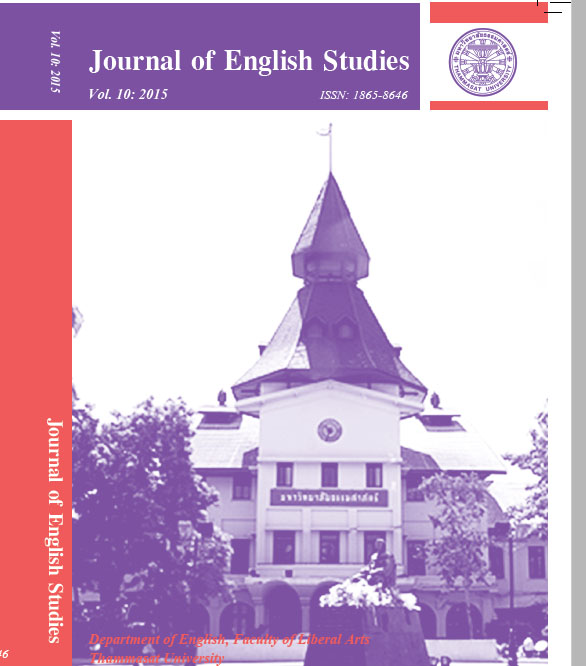“Language” or “Dialect”?: The Case of Ebonics and its Language Policy
Main Article Content
Abstract
In general, the English as a foreign language (EFL) teaching
and learning mainly cover the standard forms of English, but English
has various forms and is spoken by speakers from different ethnic
groups and languages. This paper exemplifies how EFL learners can
gain the English knowledge beyond its standard forms, through the
transformative learning approach. In this research, the topic of “Ebonics”
or an African American Vernacular English (AAVE) was chosen, as
the term “Ebonics” was controversial in 1996 and has been discussed
nationwide of whether “Ebonics” should be considered as a separate
language from English or simply a dialect of American English. In this
paper, documentary research from various sources was conducted without
bias. In addition, to gain a complete view of language policy, this
research was expanded to cover the bilingual education in the southern
region of Thailand, so as to compare and contrast it with the American
“Ebonics” case. At the end, the EFL learners have been transformed,
not only to master their English knowledge, but also to develop their
analytical and critical thinking and to combine scientific research methods
with English studies for advancing the liberal arts education.
Keywords: dialect, Ebonics, language, language policy, transformative
learning


